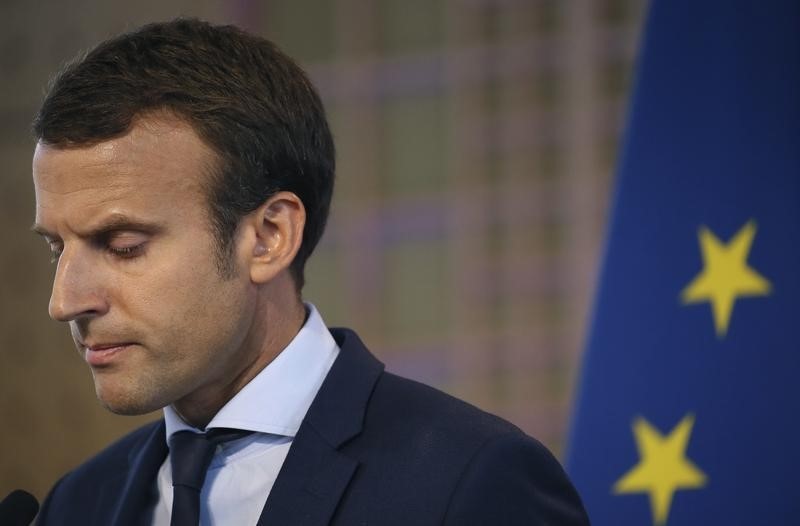PARIS (Reuters) - France's former economy minister Emmanuel Macron said on Saturday that train maker Alstom (PA:ALSO) had many options to manage overcapacity without having to close its Belfort factory, and that the Finance Ministry was right to put pressure on the firm.
Alstom said on Wednesday it planned to stop making trains at Belfort and transfer production to Reichshoffen eastern France by the end of 2018.
Macron, 38, who quit his post last month to devote himself to the political party he recently set up, told Reuters in a phone interview that Alstom's announcement had been "sudden, brutal and unexpected".
"I met myself Alstom executives in July, who did not speak to me about it," he said.
"I think government officials met Alstom executives a few days before the announcement, and they were also told nothing."
With unemployment in France still hovering close to 10 percent, jobs and the economic agenda are key issues in the campaign for next year's presidential election. Despite widespread speculation, Macron has not yet said he will stand.
Concerns over a possible wind-down at Belfort increased in 2014 after the company's associated power turbine-making activities in the same town were sold to U.S.-based General Electric (NYSE:GE).
As part of the GE deal, the government sought to protect the remaining train-making business by acquiring voting control over a 20 percent stake in Alstom's remaining business.
In May last year, Macron, as economy minister, said he did not want to see any redundancies at the Belfort train plant.
The head of Alstom was summoned by the French government for an explanation on Thursday.
"They were right to apply pressure. I think that the state can have quite a tough discussion with Alstom due to its role in public procurement," Macron said, adding that Alstom could find other ways to manage its overcapacity, which is due partly to a decline in the construction of new railway lines.
